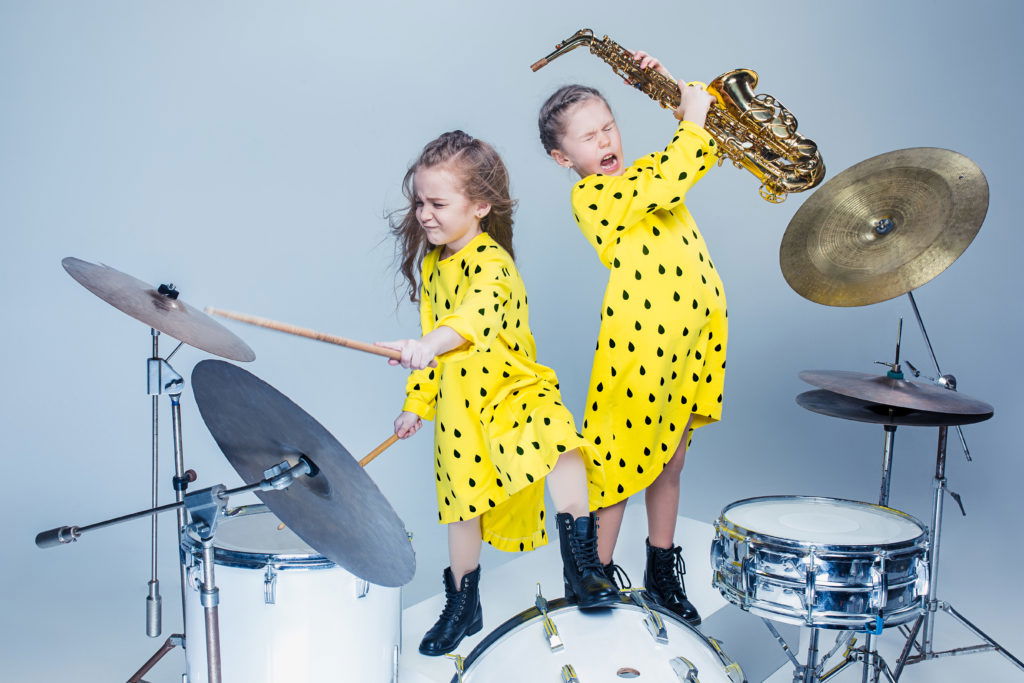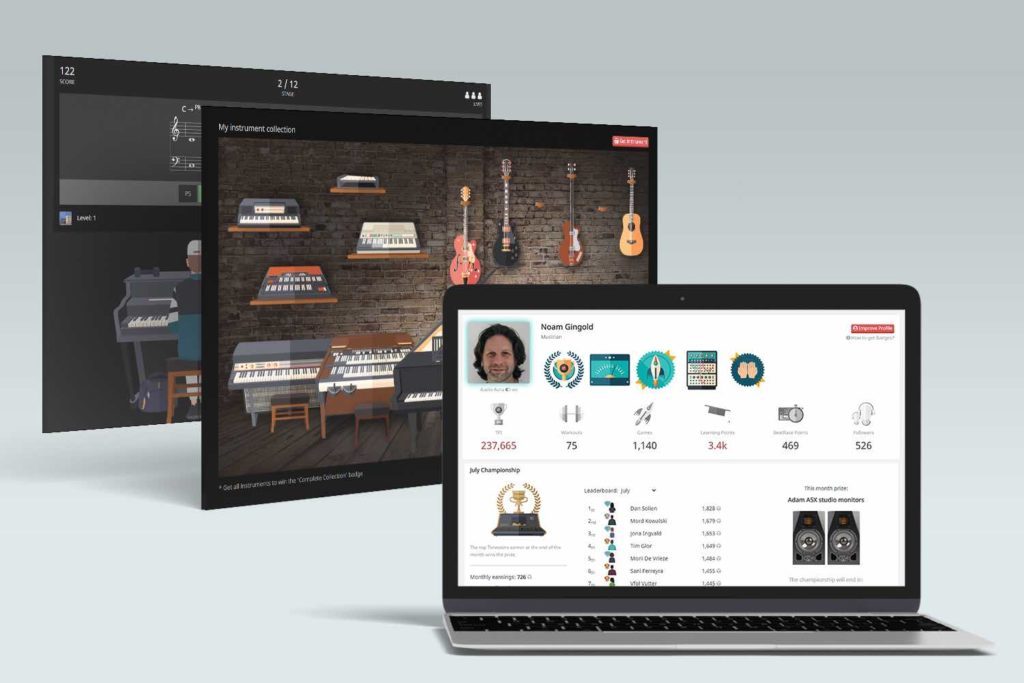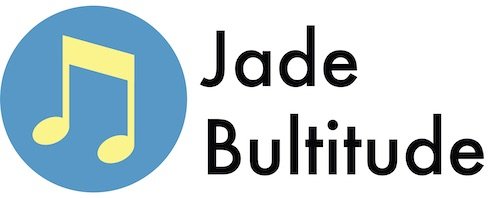This week has been fun exploring lots of different music activities with my twin toddlers! In this blog post I wanted to explore why children should learn music. I am passionate about developing and encouraging the musicality of all of my students. But why is it particularly more important for children to learn music? The big question is, should children learn music?
Why should children learn music?

Children are constantly developing and learning new things. You only have to be with a toddler for a week to hear all the new words they come out with and new things they notice. They are fascinated with everything and you can see them learning all the time. Music is no exception, anyone that has ever watched a young child engaging in a musical activity will understand the positive and powerful impact it has on their development. Music has so many benefits for the young brain. Not only does music help the child become more musical, it can also have a huge impact on their wider development.
There have been many studies proving that music has a huge impact, not only on developing a child’s musical ability, but on the brain itself! Researchers have seen that music literally restructures the brain; synapses and connections begin to develop that otherwise were not there. It is truly fascinating. If you would like to know about this in more detail then make sure to read The Music Miracle: The Scientific Secret to unlocking your child’s full potential by Lisa Henriksson-Macaulay.
ToneGym- The Ultimate Ear Training App
Maestro Classics uses recordings of famous pieces, like ‘Carnival of the Animals’ to introduce children to classical music.
Or check out our complete review of ToneGym.

there are many areas that music can develop, such as:
- Language– Songs and rhymes can hugely impact a child’s ability to pick up their native language. Music can help retain words and the expression of these words more effectively. Rhythmic patterns in particular are excellent at helping children to memorise words and phrases.
- Personal, Social and Emotional – Music is a very emotional activity. You only have to listen to a violin concerto to hear the vast amount of expression used. Or think about a song that you grew up with that holds a huge amount of memory. Lots of musical activities will promote children to work as part of a team, take turns and co-operate with each other. Music has been proven to have a powerful effect on psychological wellbeing and has been proven to reduce stress and anxiety.
- Attention span – There are many elements in a piece of music: rhythm, melody and harmony, to name but a few. But having the ability to focus in on all of these elements can have a huge impact on a child’s ability to focus.
- Memory – Music can also improve a child’s memory. By engaging in musical activities at a young age, it is possible to protect from future memory problems such as dementia. Rhythm games and copy and listen games are particularly important for children to engage in to develop their memory.
To name but a few!
Music also has a big impact on behaviour and this is a huge one I have noticed. Mine are just entering the terrible twos, but if I put on an upbeat piece of music we all start dancing and they promptly forget what they were worried about!
What have we been doing this week?
This week with the babies I have been mostly focusing on developing pulse and rhythm. We started by using songs the babies know very well like ‘The wheels on the bus’ and doing the actions along to this song. Moving to the music is excellent for their coordination and also helps to solidify the song in their heads so they can learn the tune and the words.
Developing this further we used claves, which are a type of rhythm stick. We changed the song ‘the wheels on the bus’ to ‘the sticks on the bus’. For this we tap, scratch and bang our sticks to the beat and pulse. By doing this we slowly build up their sense of rhythm and beat. It is also great fun making lots of noise!
I have also been singing lots of unaccompanied songs with lots of expression in my voice! This week we looked at ‘criss cross line line’, making sure to be really over the top with the intonation of my voice. This rhyme really encourages listening but it also helps children to understand phrases; by listening to the intonation in my voice they can clearly hear when a phrase begins and ends. We also explored vocal sounds such as whispering and speaking very loudly.
We have done lots of dancing to famous classical pieces – a particular favourite this week was Dance of the Sugar Plum Fairy. Using scarves to dance with, they were able to express themselves with movement. This also develops spatial awareness as well as their internal pulse and rhythm.
This week I am hoping to do some more specific musical training and see if I can begin to introduce note lengths.
Perhaps the biggest joy I get out of doing music with my children is the huge smile that it leaves on their faces! They love to dance and they love moving to the music.
Music Resources
Download our free note drawing worksheets for children ready to start reading music.
